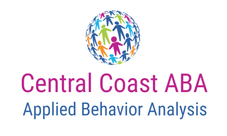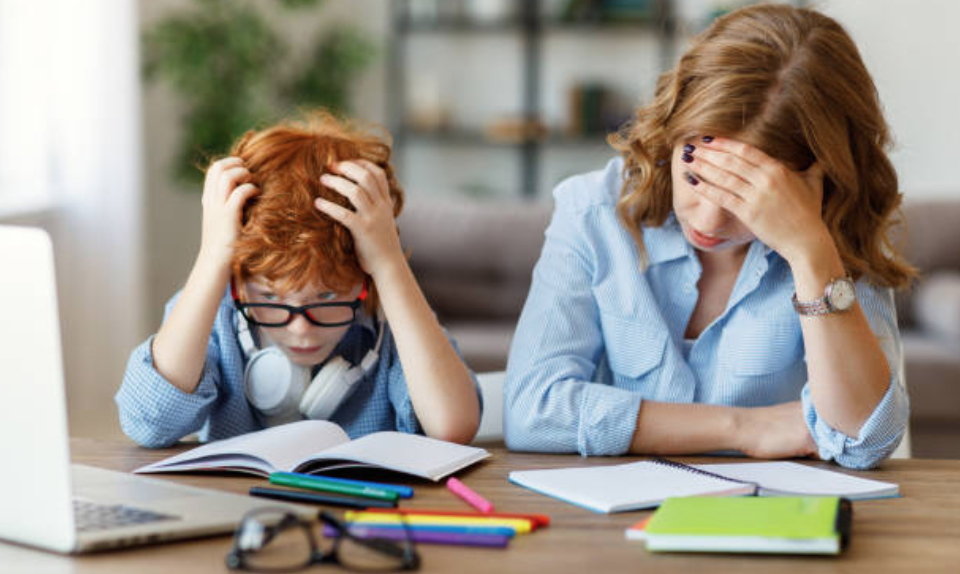|
Feelings of "It's all my fault!", "What did I do wrong?" and others like these are very common in parents, especially in those of children who have ASD and similar diagnoses. This is what is called Parent Guilt, and trust us, you are not the only parent(s) who have these feelings. So what's the deal with Parent Guilt and how do we overcome it? In this post we'll break down some examples of Parent Guilt, how to cope and how to move forward and use it in your favor instead of just existing in negative thoughts and emotions.
What Parent Guilt can look like: 1. Guilt Over Self-Blame An example of guilt over self-blame can be when a parent notices that their child exhibits a lot of the same behaviors and characteristics that they, themselves, display. This can lead the parent to wonder if their genes are to blame for an ASD diagnosis. 2. Guilt Over Past Mistakes: This kind of parent guilt can look like an older or adult child being diagnosed with ASD later in life versus at a young age. This leads the parent to wonder that if they had received the correct diagnosis at an earlier age, how much different the trajectory of their child's life would be. 3. Guilt Over Negative Thoughts: In some cases, a parent mourns the child that they had imagined they'd have and with this, it often leads to the parent struggling to come to terms with some of the child's limitations. This, in turn, leads to the parent overcompensating with a lack of boundaries which ultimately may end up hindering the child instead of helping. 4. Guilt Over Child's Suffering: This kind of parent guilt is often seen as the child endures their teenage years. Between the acting out, challenging parent's authority, spending more time away in their rooms and away from rest of family, parents can feel as though they should be doing more. However, those feelings can then lead to the child feeling smothered. 5. Guilt During the Pandemic and Quarantine Times: This is a very timely and specific kind of parent guilt as we are currently dealing with multiple serious illnesses at the same time. Not knowing how to fully handle these situations as they arise and then having to spend time apart if someone is sick can lead to guilty feelings similar to past mistakes. Other ways that parents can feel guilty is on social media, with trusted professionals, and the people that are in their circle. For instance with social media, there are many different kinds of content creators who curate their feeds with what they do with their children and how "well-behaved" they are. Many times, this is not fully the case as with any child they might behave how you'd like them to for a while and then act out. Taking things on these platforms with a grain of salt is in your best interest when trying to overcome these feelings. As far as trusted professionals go, even doctors and health care specialists with the child's best interest at heart can make you feel inadequate, as if you're already not doing your best. Again, these recommendations are not a personal attack so they should not be taken personal, even if it feels that way at first and the defense mechanisms kick in right away. When it comes to your circle, who are you surrounding yourself with? Are these people going to support or hinder you as you try to navigate raising a child with ASD or a similar diagnosis? It's important to evaluate those around you and ensure you are being supported in the way you feel is best. Being around like-minded people can help ground you as you learn and grow with your child. So with all of this information, how do we cope? It's going to take a lot of patience and consistency with confronting these feelings when they occur. Recognize these feelings and work through it. Exploring these guilty feelings can help parents begin to master them and feel empowered to redirect the guilt to set the child up for success. Understanding the guilt in the context of the parent's own struggles and conflicts can help separate them from the interactions that take place with the child. Now that you have the tools to recognize what parent guilt is, how it feels, and how to deal with these feelings, do some self reflection. When reflecting on decisions you've made with your child, think about whether they were made out of parental instinct or parental guilt. Guilt is a perfectly natural feeling, we all have it. It's finding the right balance that is key and then in turn modeling it to our children the best we can. If not, apologize and try your best again to show it's okay to make mistakes as we are all learning! Below are the links for the references for this blog post: https://www.autismspectrumnews.org/its-all-my-fault-understanding-guilt-in-parents-of-children-with-asd/ https://www.healthline.com/health/parenting/mom-guilt Was this information helpful? Please share your thoughts, experiences, and feedback with us. You can find us on Facebook, Instagram and LinkedIn @centralcoastaba.
0 Comments
Leave a Reply. |
AuthorOur Board Certified Behavior Analysts (BCBAs) are dedicated to sharing their expertise on topics that are important to you. Archives
January 2024
Categories |


 RSS Feed
RSS Feed
